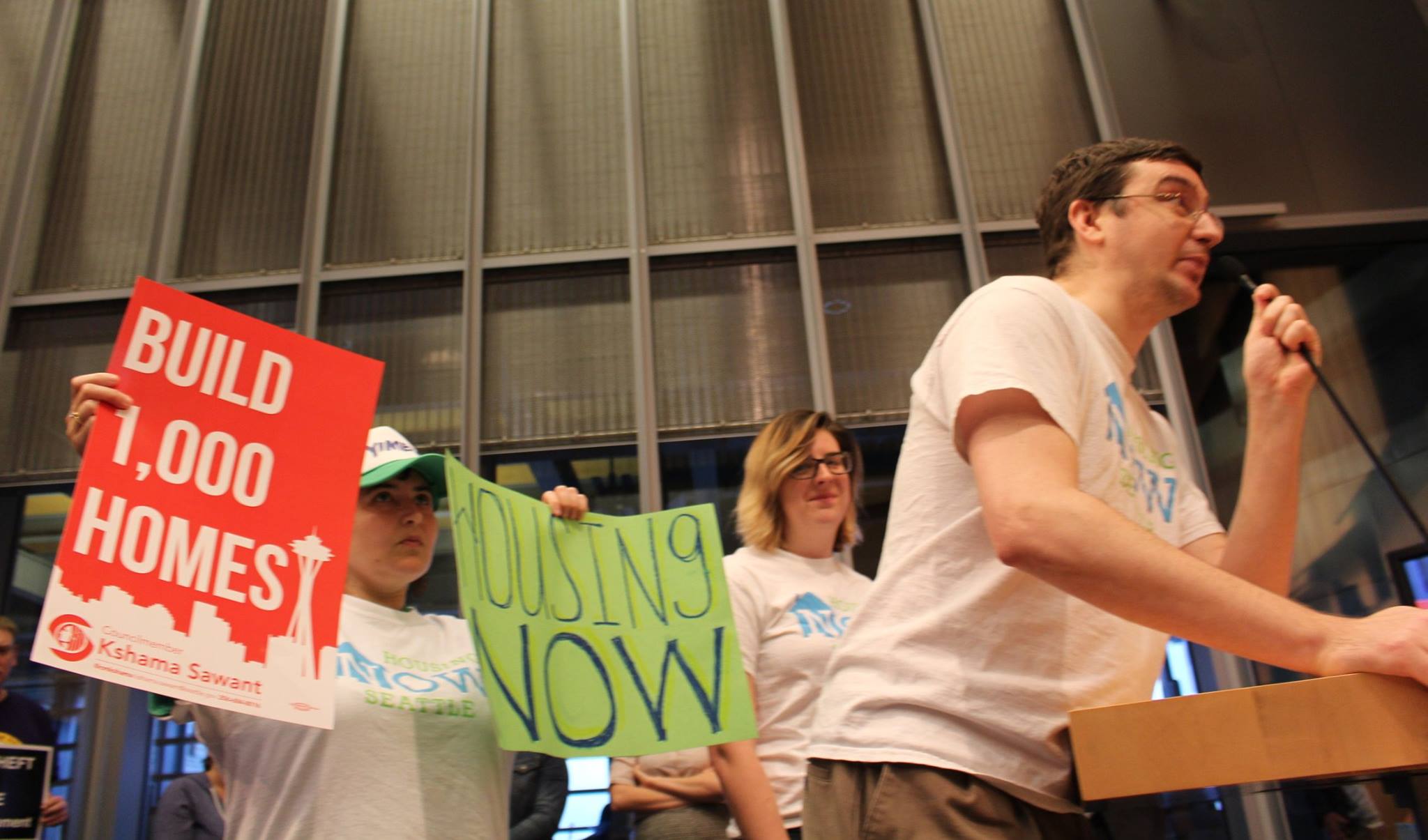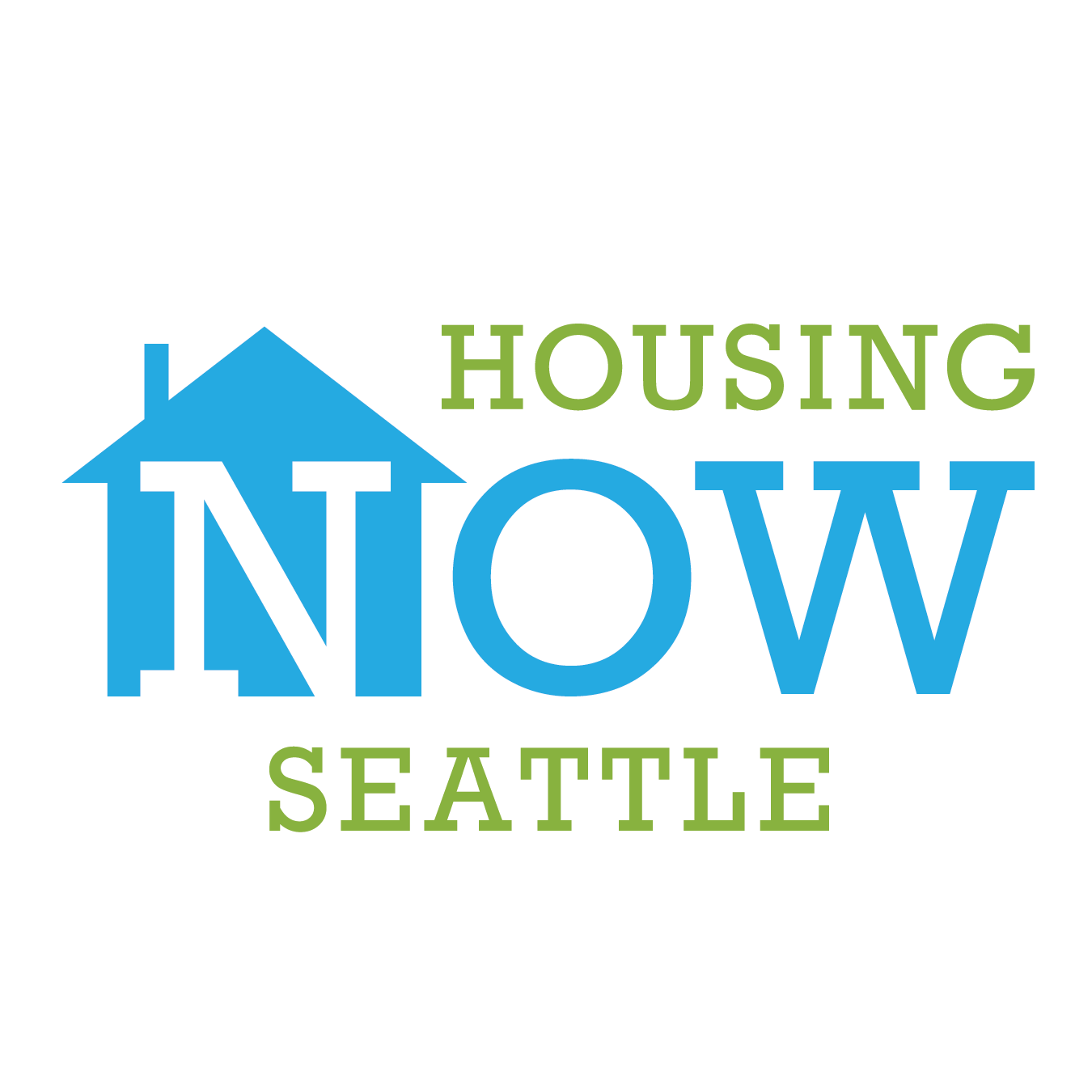Before most new buildings in Seattle can be constructed, their plans must first go through a process known as “Design Review.” Design Review Boards (DRBs) consist of volunteers selected by the city. These boards review building proposals and recommend changes to make building designs more aesthetically pleasing and functionally integrated into their surroundings. Sounds good, right? There are two problems: first is that there’s no objective definition of good design. What may seem like a good or at least acceptable design to one person may be objectionable to another. Design review is as likely to suppress interesting designs as it is to avoid “bad” designs. Second, and perhaps more importantly, the time it takes to undergo multiple design revisions raises the cost of building housing. This applies to both for-profit and nonprofit buildings alike.
Fortunately, the Housing Affordability and Livability Agenda (HALA) report identified design review reform as a priority. The goal was to reduce the costs that design review adds to the price of new housing by exempting more smaller projects from design review and creating an abbreviated design review for medium projects while reserving the full design review process for the largest projects. Since smaller projects are more sensitive to costs and uncertainty, this makes a lot of sense. It’s also the case that a small project is less likely to become a visual eyesore than a large one.
The HALA report was published in July 2015 and the Seattle City Council is just now getting around to implementing this proposal. Housing Now has written them the following letter expressing our ideas about this proposal and how it can be improved.

Housing Now is focused is on expanding publicly financed housing. We strongly support welcoming more people into all of our neighborhoods and this means welcoming the housing that people need. Design review serves some admirable purposes but we agree that it can be reformed to better serve our city. We believe the proposed legislation is necessary but that it can be improved. Below we’ve identified changes which we think will benefit housing affordability.
We favor the current proposal to allow Administrative Design Review (ADR) exemptions for affordable housing. Given the desperate need for more affordable housing, we can’t afford to delay this housing.
We have concerns about the complex site characteristics section. Specifically, we object to the special treatment of developments abutting or across an alley from single family zones. This requirement is not fair, it would elevate the voices of an entire class of people over that of their neighbors. We also oppose the requirement that would see projects next to areas zoned 20ft lower face additional scrutiny; we worry that this may prevent some missing middle housing from being built.
The Sightline Institute made some keen observation in their letter to you on this topic, to wit: 1) any need for special design considerations around zone transitions ought to be handled by design standards in the land use code, not by DR; 2) this constraint will disproportionately affect RSL and LR zones (which are usually adjacent to SF zones) and thus jeopardize missing-middle housing; and 3) this is the opposite of streamlining the DR process which was a critical HALA recommendation.
We support the proposed 2-meeting limit, and ask that it be extended to all projects without exception, including those seeking departures.
While a four to eight week DR timeline reduction would be some progress, we ask for still bolder and more ambitious action towards the goal of housing everyone. We specifically prefer Amendment 9C, followed by 9B. We believe that lower square-footage thresholds would be counterproductive to HALA’s goals and recommendations.
It’s also the case that new mandatory Community Outreach requirements, unless rigorously constrained in scope and duration, would likely delay the construction of additional affordable housing units. At bare minimum, affordable projects should be exempted from this requirement. Ideally, this requirement would be deleted and community outreach would remain the voluntary practice it is today.
We support Amendment 3B, which would grant Special Review District (SRD) boards and Landmark Preservation Boards authority to approve land use code departures. This change would show deference to and respect for the will of communities (such as those historically residing in the Chinatown-International District) that have experienced racial and economic discrimination, plus it would reduce the burden on the existing DRBs and streamline the DR process overall.
We strongly support additional training, guidance, and oversight for the DRBs. Whether due to bullying from aggressive community stakeholders, or due to personal preference, design review boards have all too often required changes of debatable utility that have increased delays, costs, and risks for urgently-needed housing projects.
Seattle for Everyone put it best, saying: “The training of both board members and staff is crucial to the success of revisions to the design review process, and we urge the Council to allocate funding for a robust training program that includes instruction on the goals, vision, and impacts of the HALA recommendations to equip members and staff with baseline information from which to consider the impacts of their decisions on housing costs. The staff and board training program should also include clear guidelines on the appropriate scope of influence, responsibilities, and authority of DRBs and department staff, as well as training and performance monitoring to ensure the program revisions translate to improvements in design review decision-making processes.”
We would go so far as to recommend–resources permitting–having SDCI professional staff preside over, facilitate, and act as moderator at DRB meetings to keep discussion within scope and on track.
Reforming design review is just one of many HALA recommendations and one of many things we can do to make Seattle more affordable. Our hope is that we push hard on this reform in the interest of having the most benefit. Merely checking off the “design review reform” box on the list won’t make housing less expensive. Only substantive reform will help ensure that our community remains welcoming to all.
This letter is a cross-post that originally appeared on Housing Now’s website.



